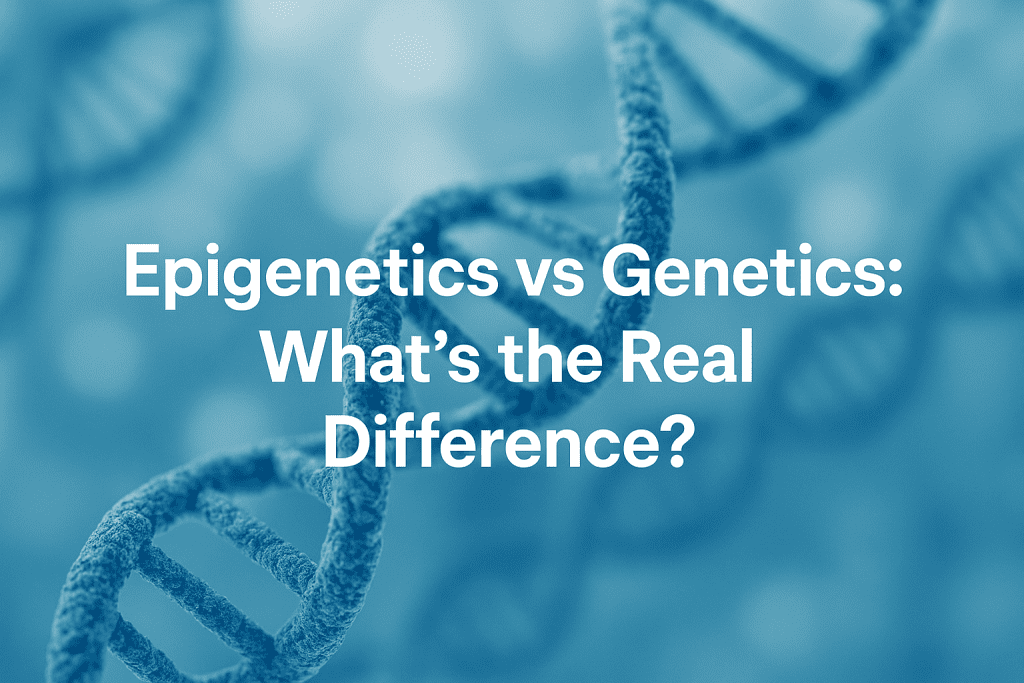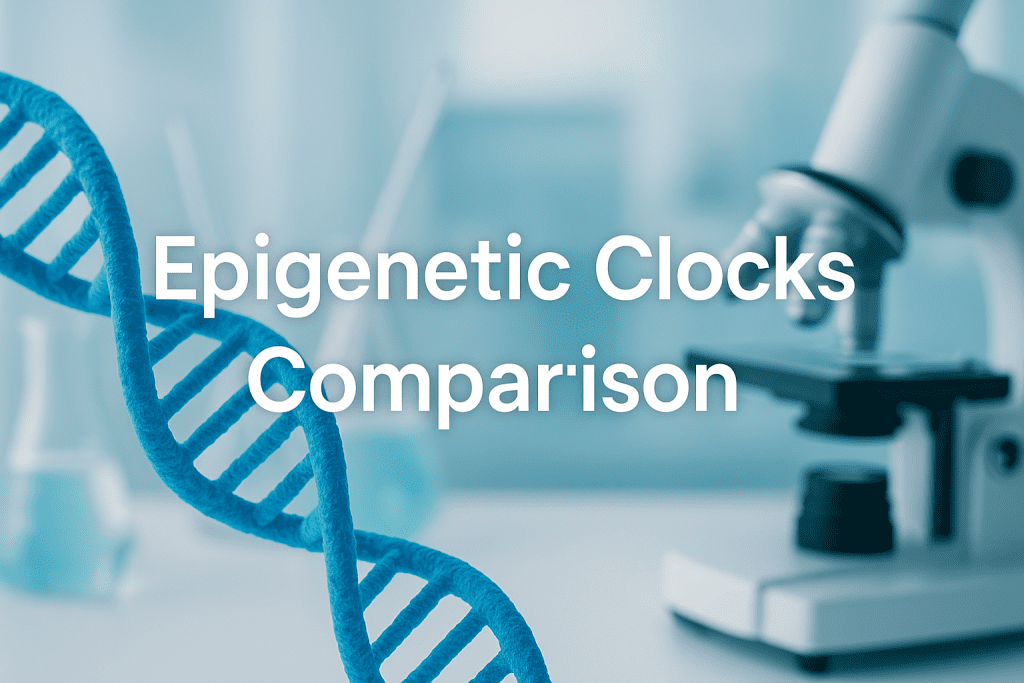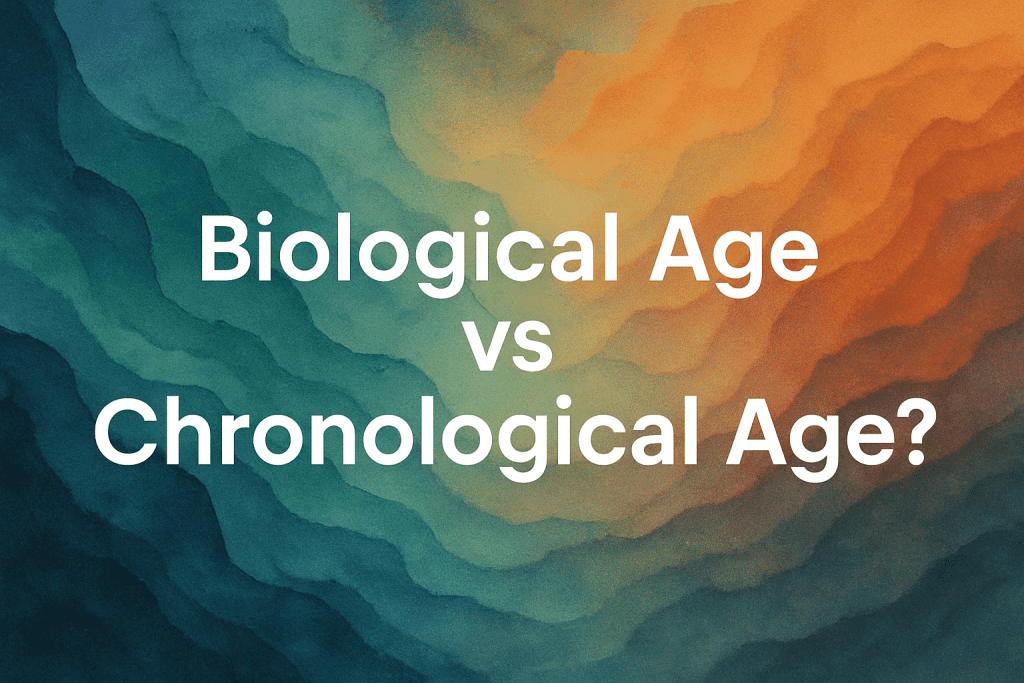
What You’re Born With vs What You Can Change
You’ve probably heard the phrase, “It’s in my genes.” But when it comes to your health and aging, that’s only half the story.
Your DNA might load the gun, but your lifestyle pulls the trigger. That’s the key difference between epigenetics vs genetics.
Let’s break it down in a simple, science-backed way. You’ll learn what each one means, how they work together, and which tests give you the best insights into your real health.
What Is Genetics?
Your Fixed Code for Life
Your genes are the instructions you’re born with. They never change. They tell your body how to build muscle, process food, detox chemicals, and respond to infections.
You inherit this code from your parents, and it stays the same for life.
Genetics can explain:
- Why some people can drink coffee late and sleep fine ☕
- Why others are more prone to diabetes or heart disease ❤️
- Why your friend handles stress well and you don’t 😮💨
- How your body stores fat or burns it faster 🔥
Genetic testing is usually done once. It gives you a roadmap, but not your current status.
Popular genetic tests include:
These tests are great for long-term prevention, family planning, and building your wellness strategy based on your DNA blueprint.
What Is Epigenetics?
The Part You Can Influence
Now here’s the exciting part: epigenetics is what you can actually change.
It studies how your habits affect how your genes are turned “on” or “off”, without changing the DNA itself.
The main signal used is called DNA methylation. It’s like a tag that tells your genes what to do. And it responds to:
- What you eat 🥬
- How well you sleep 😴
- Your stress levels 🧠
- How often you move 🏃♀️
- Whether you smoke or drink 🚬🍷
- Your exposure to toxins 🌫️
That means you can actually influence how your body ages, right down to the cellular level.
What Epigenetic Tests Can Show
Epigenetic tests measure DNA methylation and other biomarkers to give you insights into:
- Your biological age (how old your body acts)
- How fast you’re aging
- Immune system health
- System-level aging (heart, brain, liver, etc.)
- Inflammation and lifestyle impact
This is your current snapshot. Unlike genetics, epigenetic results can change over time.
Top epigenetic tests include:
Most can be repeated every 3–6 months so you can track your health changes over time.
Epigenetics vs Genetics: Key Differences
Here’s a simple comparison:
| Feature | Genetics | Epigenetics |
|---|---|---|
| What it measures | Fixed DNA code inherited from parents | Gene expression changes based on lifestyle |
| Can it change? | No, static throughout life | Yes, influenced by diet, sleep, stress, toxins |
| Used for | Predicting disease risk, traits, metabolism | Tracking biological age, inflammation, aging speed |
| Test frequency | One-time test | Repeat every 3–6 months to track progress |
| Sample type | Cheek swab or saliva | Saliva, blood, or cheek swab (depends on test) |
| Health insights | Long-term planning: disease risk, nutrition, exercise type | Current state of health, aging trajectory, immune function |
| Example tests | Nucleus Genomics, Toolbox DNA, The DNA Company | TruAge, GlycanAge, Elysium Index, MyDNAge |
Which Test Is Right for You?
If you’re building a long-term strategy, start with a genetic test. It helps you understand your risks, strengths, and tendencies.
But if you’re actively trying to improve your health, or see if your biohacks are working, an epigenetic test gives you real-time feedback.
Smart users often choose both:
- Genetics gives you a map 🗺️
- Epigenetics shows you where you are on the road 🧭
Read more about the different epigenetic clocks comparison.
Real-World Example: Same Genes, Different Outcomes
Let’s say two people both have a gene that increases their risk for inflammation.
- One sleeps 8 hours, exercises, eats well, and manages stress
- The other eats poorly, stays up late, and rarely moves
Their genetic results would look identical.
But their epigenetic age could differ by 5 to 10 years.
That’s why tests like TruAge or GlycanAge matter, they show how your lifestyle is affecting your aging in real time.
Frequently Asked Questions
What’s the main difference between epigenetics and genetics in health testing?
Genetics tells you what traits or disease risks you were born with. Epigenetics shows how your environment and habits are currently affecting your genes. In health testing, genetic tests are fixed and one-time, while epigenetic tests can change over time and track your lifestyle impact.
Can epigenetic testing really show if my lifestyle is working?
Yes. Epigenetic tests like TruAge and GlycanAge measure DNA methylation or immune aging to reflect how your current lifestyle is affecting your biological age. These markers respond to changes in sleep, diet, stress, and fitness, making them useful for measuring progress.
Is a genetic test enough, or do I also need an epigenetic test?
A genetic test gives you long-term risk insights, but it doesn’t reflect your current health status. If you want to know how fast you’re aging or how well your interventions are working, you’ll need an epigenetic test too.
What’s the most accurate epigenetic test to track biological aging?
Tests like TruAge (using DunedinPACE) and MyDNAge (using Horvath’s clock) are backed by peer-reviewed studies and offer high accuracy for tracking biological age. Elysium also provides system-level insights via saliva.
How often should I repeat an epigenetic test?
If you’re actively improving your health, most experts recommend retesting every 3 to 6 months. This helps track how diet, supplements, or sleep changes are impacting your biological age and inflammation levels.
Do genetics or epigenetics play a bigger role in how fast I age?
Your genetics set the baseline, but epigenetics has a bigger influence on your rate of aging. Research shows lifestyle factors can significantly reduce or accelerate biological aging, even if your DNA says you’re at risk.
Which test helps me choose the right supplements or diet plan?
Genetic tests can suggest nutrient needs and metabolic types. Epigenetic tests show whether your current diet or supplements are actually working. For best results, use both together.
Are at-home epigenetic age tests scientifically valid?
Yes. Leading tests like TruAge and Elysium are based on validated algorithms (like DunedinPACE and Levine’s model) published in journals such as Nature Aging. They use thousands of methylation sites to deliver reliable, science-backed results.



